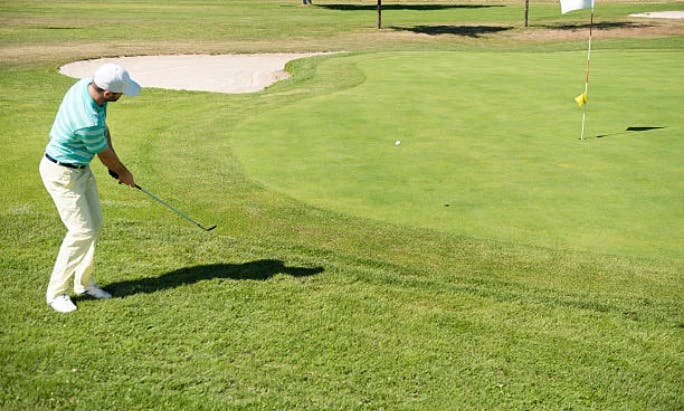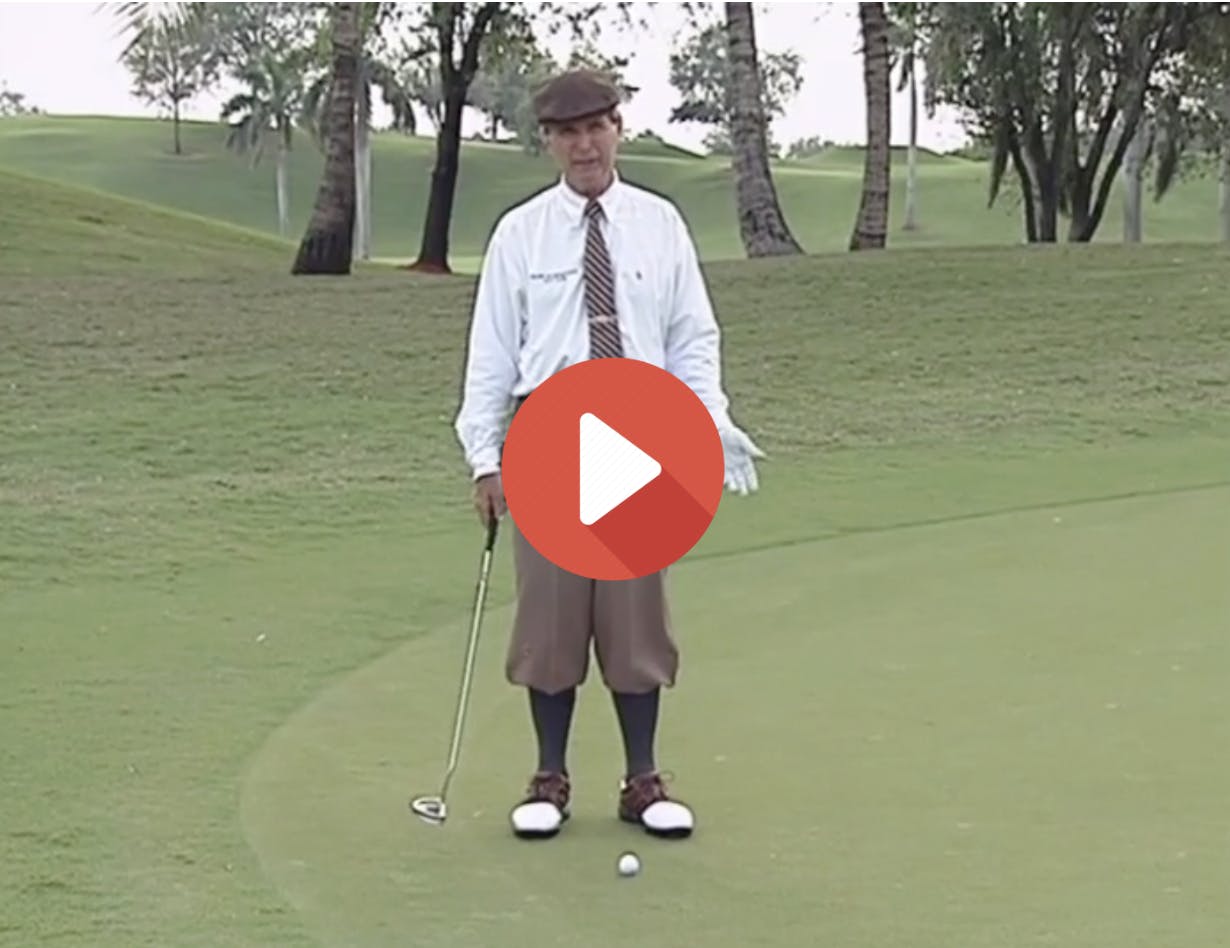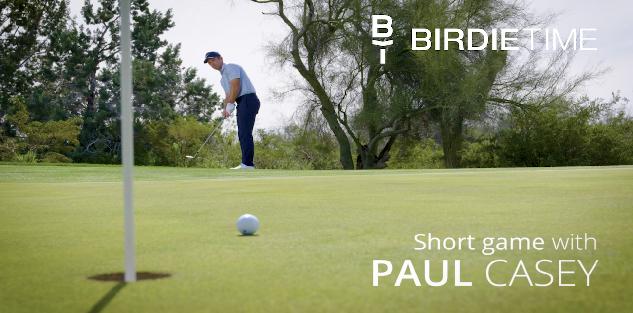Featured courses
- Three Priceless Tips From a Golf Legend by Grant Young
- Two Main Principles For Improving Your Golf Short Game by Grant Young
- Short Game 101 by Charlie Anderson
- Three Ways to Make More Difficult Putts by Grant Young

Two Main Principles For Improving Your Golf Short Game
- By Grant Young
The short game in golf can be the most challenging aspect of the sport for many players. While hitting long drives off the tee may seem impressive, it's the finesse and precision required for chipping and putting that can truly make or break a golfer's game. Mastering the short game demands a great deal of skill, touch, and concentration.
Unlike the full swing, which allows for some margin of error, the short game requires a high level of consistency and control. Ultimately, success in golf often comes down to proficiency in the short game, and those who can excel in this area are likely to see significant improvements in their overall performance on the course.
And when done well, the short game can be golf’s most satisfying aspect. Successfully executing a delicate chip shot to get the ball close to the pin or sinking a long putt can bring about a sense of achievement that is hard to replicate in other aspects of the game. The short game also offers opportunities for creativity, as players can employ various techniques and strategies to navigate around hazards and onto the green.
Additionally, the short game often plays a crucial role in determining a player's overall score, making every successful chip, pitch, or putt feel like a significant accomplishment.
All of which is to say that it’s worthwhile to try and improve your short game. And online golfing coach legend Gary Wiren is here to help you do so.
Coach Wiren is a member of six Golf Halls of Fame, including the PGA Hall of Fame and the World Golf Teachers Hall of Fame, and has honorary memberships or distinguished service recognition from Sweden, Italy, New Zealand, and Japan. Wiren was a collegiate conference champion, won the South Florida Seniors PGA title, and the South Florida long-driving championship, played in the USGA Senior Open and the PGA Senior Championship and has won the World Hickory Championship.
Coach Wiren’s ‘Great Golf Drills Vol. 2 - The Short Game featuring Dr. Gary Wiren’ course will teach you which shots to play in different situations, how to develop the touch necessary for a great short game, and will help you to learn the correct principles of practicing the short game and dramatically lower your scoring average.
Dialing For Distance
The first (and most crucial) point when deciding which clubs to use when attempting to land a shot on the green is knowing how far away you are from the hole.
The best way to do this is with experience. The more you’re out on the golf course, the better you’ll be at gauging distance. But if you’re relatively new to golf, a great way to know is by using the yardage markers placed along the length of the hole. Better yet, if you have access to a yardage book for a template for the gold course you’re at, this can be an incredibly useful tool.
Once you calculate an estimated range from your ball to the hole, you’ll want to have a good understanding of how far back you want to take your swing. For example, if you’re ten yards away from the hole, you’ll want to swing so that your club head goes about parallel to your knee during your backswing. If you’re about 20 yards away, your backswing will be around parallel to your hip. A 35-yard chip shot will make your backswing go about to your bicep, and so on.
Again, repetition is paramount when it comes to deciding which club to use. This is where getting reps in on the driving range is vital because you can test shots and distances with each club to see which best suits you at each distance. It would also be wise to keep a notebook, telling you which clubs you like at certain distances.
The Right Direction in Chipping
One drill that Coach Wiren loves to utilize when helping students with their chipping direction is placing a club on the ground next to their ball that can help them line their shot up, so they can see where the club of their swing goes through to the target.
After doing this for enough repetitions, students should be able to envision that imaginary club on the ground while they’re playing, which will be useful in lining up a straight shot.
Coach Wiren suggests that, when it comes to knowing where the ball should be positioned between your legs when taking a shot, what you can do is stick a tee in the tops of your club’s grip, place it in front of your sternum, and look downwards. The tee should be about ½ inch in front of where you see the ball on the ground beneath it. If that’s where it is, your ball is in the correct position.
Principles For Putting

Coach Wiren explains how there are main principles for putting success:
1. Stroke Mechanics
This is essentially learning to swing the putter smoothly, like a pendulum swing. This can be learned in a week.
2. Reading the green
Learning how to accurately read a green can take a lifetime, but some tips Coach Wiren is to imagine that every putt is a straight putt in your mind. In other words, if the green has a slope, you should be still executing a straight putt that accounts for the slope and any other factors that will affect how the ball travels.
He also goes on to note that reading the green is also about pace, which means gauging how hard to hit the ball. While this will take time and experience, imagining a straight line in your head can improve how well you’re able to read the green.

